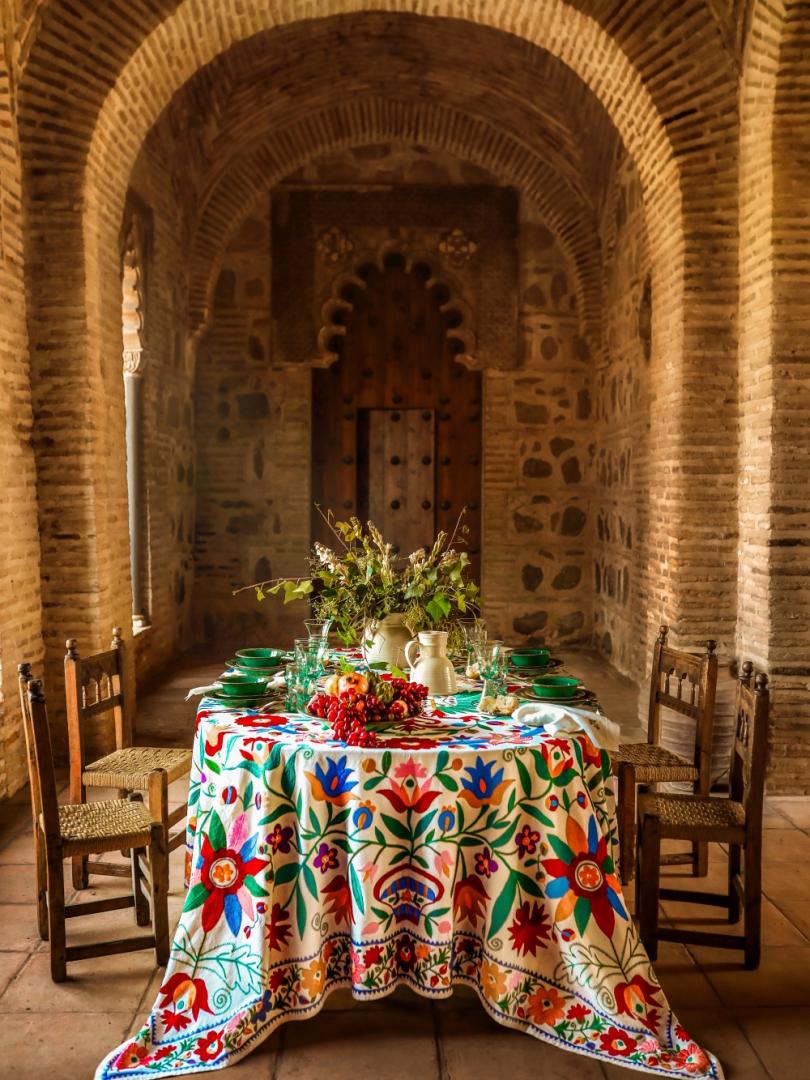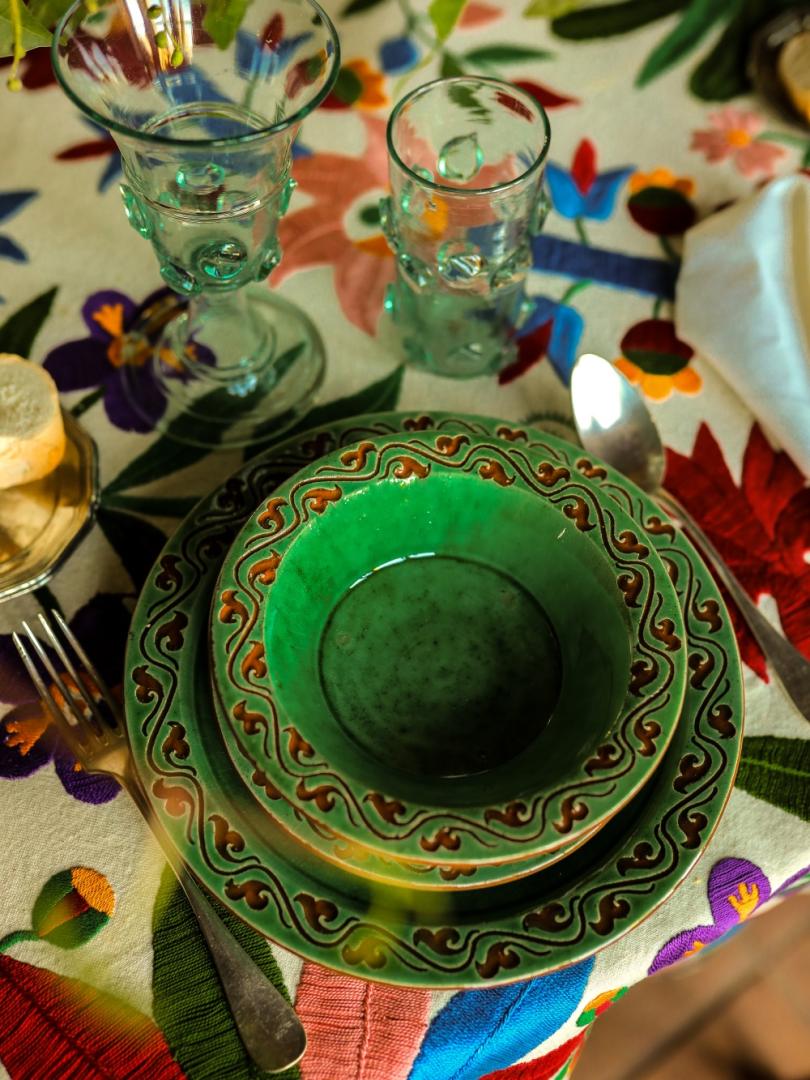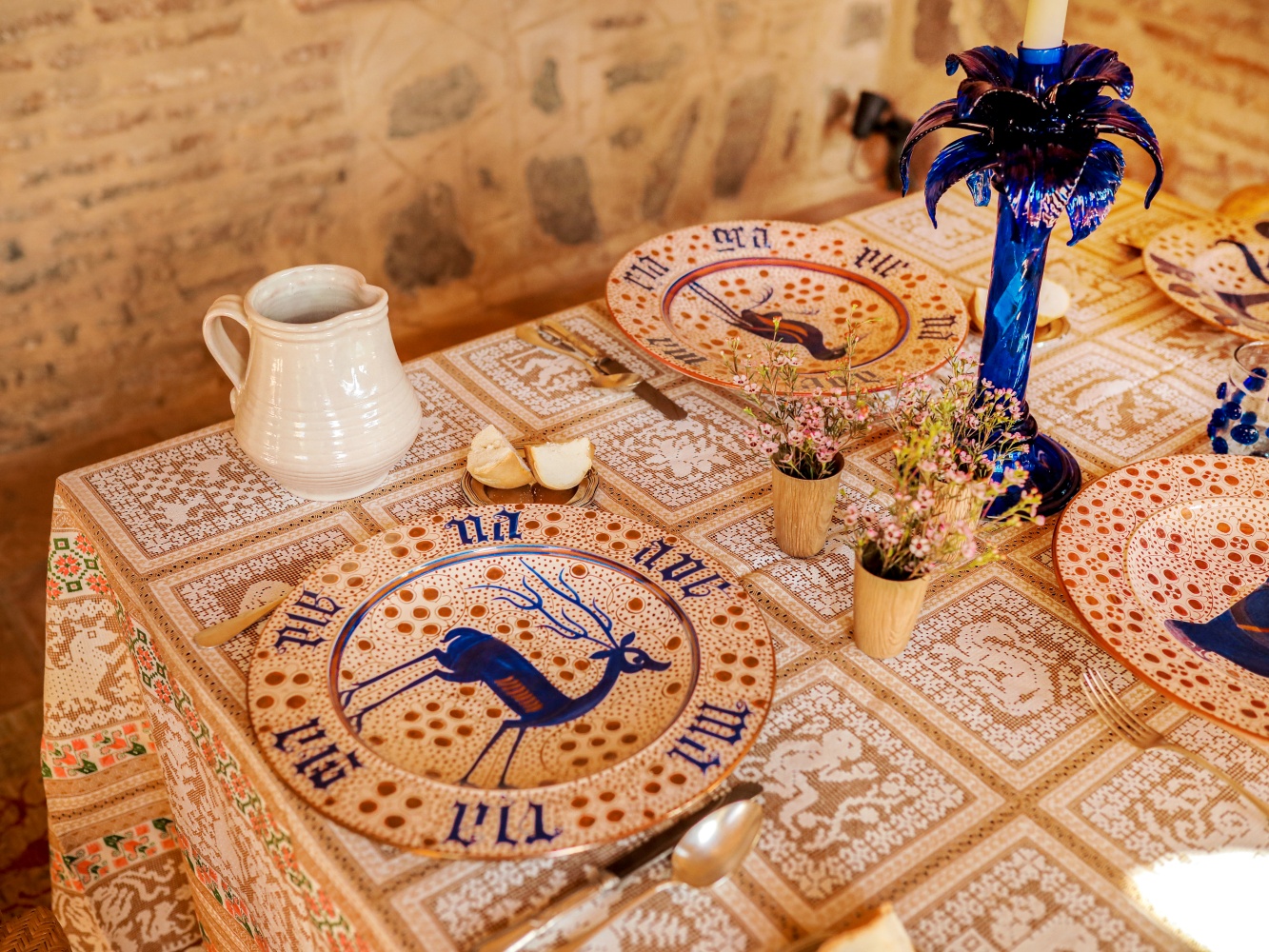CONTEMPORANEA DE ARTES Y OFICIOS
Basic information
Project Title
Full project title
Category
Project Description
The Contemporary Association of Arts and Crafts is a non-profit association which promotes the education of the future craftsmen and preserves the most valuable dimensions associated to traditional and contemporary crafts in Spain, such as its identitary, cultural, artistic and historical dimensions, as well as its sustainable, tourist and economic values, pursuing crafts innovation through design and digitalization, and Spanish workshops internationalization through our e-commerce CASA ALIA.
Geographical Scope
Project Region
Urban or rural issues
Physical or other transformations
EU Programme or fund
Which funds
Description of the project
Summary
The evolution of COVID-19 has caused a crisis of values and consumption models in the global socioeconomic context. The moment could not be more opportune to the renewal Crafts claim in total harmony with the new EUROPEAN BAUHAUS due to the change of the consumer profile and its responsible way of consuming artisan products that respect the environment, as opposed to industrial production that threatens the Planet. We propose a more ethical approach based on responsible consumption, environmental sustainability, gender equality and solidarity with small businesses and local artisan workshops to:
- Promote creativity and design applied to craft production, turning it into useful and durable consumer objects for the new generations of consumers.
- Reinvent craftsmanship hand in hand with young artisans, young creators and young designers who recycle and use new waste materials in a model of circular economy.
- Promote economic development and employment in rural and depopulated areas favoring the entrepreneurship of artisan workshops and promoting a cultural tourism of higher quality.
- Dynamize the local culture, recovering and updating its traditions and signs of identity within the global context, promoting a more proactive attitude and greater awareness of Spanish society of the loss of traditional crafts, its heritage and knowledge.
The inclusion of crafts to promote local development, in contrast to the model introduced by globalization. It is our priority to include Crafts as part of the Spanish cultural offer, along with other manifestations such as Gastronomy, Fashion or Fine Arts. It is our commitment the innovation of Spanish Crafts through Design, its promotion through digital marketing and its commercialization through our e-commerce CASA ALIA, an e-marketplace where we can show the world our craftsmanship endowed with sufficient promotion and logistical capacity to reach national and international customer.
Key objectives for sustainability
We emphasize the lack of recognition of Crafts cultural, demographic, economic, environmetal and sustainable values. The already existing economic difficulties aggravated by the pandemic are leaving few Spanish workshops alive. Crafts represent the culture and identity of a village/region/country, and are an integral part of their cultural heritage. Crafts contribute to local, regional and national economic growth, generating employment and income. Crafts preserve the close environment where the raw material procedes and process it with a low ecological footprint. Crafts help to transmit and maintain cultural roots and local, regional and national identity. The Association works to:
- Make Spanish society aware of the virtues of Crafts as a sustainable option for production, as a way of subsistence for small craft workshops located in rural areas, and as a way of avoid depopulation and unemployment in rural areas of Spain.
- Promote the unique handcrafted piece, made by hand, durable over time, the cult object that unites design, quality and prestige instead of the uniformity of globalization, the "low-cost" product and the "use and throw away" philosophy.
- Give visibility to the work of artisan women, especially those in the rural world.
- Bring the artisan products from the artisan workshops to the customers through e-commerce digital and logistics advantages.
- Trust the ability of craft workshops to develop new sustainable materials due to their suitability to research, thanks to its deep knowledge of raw materials, their applications and their behavior in the manufacture of products.
- Promote workshops that resemble research laboratories with the help of new technologies and scientific knowledge, developing new materials from waste, proposing its transformation in finished products.
- Approach Crafts to the world of design, which is rediscovering the intangible values and techniques of artisan “KNOW-HOW”.
Key objectives for aesthetics and quality
We work to communicate Crafts values by:
- Replacing the image of dying Crafts in souvenir shops and street markets with a new concept of crafts linked to design, creativity and e-commerce.
- Promoting values such as identity, originality, culture, skill, quality and excellence. The combination of tradition and modernity. The craftmen know-how meets the designers know-how.
- Promoting values such as differentiation and exclusivity, since in many cases we will be facing a unique master piece.
- Involving creators and designers working as a team with artisans who master the techniques and crafts.
- Highlighting the raw material and the technique used, generally sustainable and with a low ecological footprint, together with a territory and a culture, which has its origin in tradition and whose future is innovation.
- Promoting the added value of crafts, acting on the excellence of students training in arts and crafts schools, promoting training and support in the management of the workshops (business, digital and commercial management)
- Promote training, support and promotion in international export.
- Promote support for entrepreneurship, modernization of equipment and machinery and the digitalization of processes
Key objectives for inclusion
The key objectives are to support Spanish Crafts survival as an artistic, historical and cultural heritage, but also to revitalize its present and enhance its future by:
- Updating CRAFTS through DESIGN.
- Introducing the link between CRAFTSMANSHIP and DESIGN in study plans and promoting internship programs for future craftsmen.
- Promoting grants and scholarships so that master artisans can offer training and internships to young apprentices in their workshops.
- Promoting the improvement of the management of the artisan workshops thanks to the new digital tools to get digital skills for diffusion and commercialization without borders.
- Promoting CRAFTS from the point of view of sustainability as they preserve the use of raw materials offered by the environment.
- Promoting local economies, giving the opportunities for employment in rural areas and contributing to avoid an empty Spain.
- Promoting traditional CRAFTS as a sign of unique and irreplaceable cultural identity.
- Publishing the list of Spanish CRAFTS in danger of extinction.
Our project should serve to expose, give visibility and claim the lack of knowledge of craft values and draw attention to the extinction of workshops by lack of innovation and succesion.
Results in relation to category
“Regaining a sense of belonging”: it is a reality not sufficiently known by society that the old crafts are being lost in Spain. From a sustainability perspective, the loss of an artisan trade is as tragic and irretrievable - apart from the distance - as the loss of an animal species. An update of craft production from the perspective of Design would help revitalize the sector and make young people feel this concern and, through an appropriate educational offer, return to Arts and Crafts studies to create products for everyday use adapted to current needs. To this end, our Association proposes the general objectives that are listed below:
• Support the preservation and innovation of Crafts through the application of Design, promoting formulas for Craftsmen and Designers to work hand in hand in close collaboration.
• Update a tradition of culture and excellence through Design, adapting it to digittalization and the reality of today's market economies.
• Support and defend the value of Crafts as a form of demographic and environmental sustainability in rural areas, avoiding unemployment and the depopulation, and promoting rural centers of environmental, tourist and cultural interest.
• Support the students of Arts and Crafts of the new generations to ensure generational change.
• Make Spanish society aware of the benefits of buying Crafts as a responsible consumption option, as the most sustainable form of production and as a way to contribute to the subsistence of small workshops and craftmen, many of them located in rural areas.
• Contribute to the international difussion of Spanish crafts as a product with a recognized and demanded value.
• Promote collaboration with top-level international brands in the world of luxury that appreciate and demand artisan products, in order to contribute to the development of the Spanish craftmanship.
How Citizens benefit
- We target the Spanish Society with the aim of giving artisans a voice and visibility, to preserve their knowledge and heritage.
- We target to Spanish Designers, Artisans and Companies that share this concern and wish to join the movement to renew and promote Crafts.
- We target all citizens who are in favor of a responsible consumption and the purchase of vernacular, aesthetic, sustainable and unique products handmade to last.
- We target the general public interested in “MADE IN SPAIN” handcrafted products with an offer of superior value in design, quality and price.
- We target brands that value singular products with excellent craftsmanship, that flee from endless series and that seek to satisfy their customers with a timeless product.
- We target Spanish private foundations willing to lead the Craft renewal movement in our country, as well as other similar European foundations as a line of action in their Corporate Social Responsibility programs.
Physical or other transformations
Innovative character
CASA ALIA, the marketplace created by the Contemporary Association of Arts and Crafts, publishes pieces of Spanish Crafts conceived by designers and creatives and manufactured in a selection of workshops chosen for their tradition, the quality of their work and the mastery of their craftsmanship. In other words, CASA ALIA orders products from designers and artisans to market them.
The originality of the company lies in the nature of the products, which will always be useful pieces that cover all the needs of current use in a house, including furniture, lighting, kitchen and bedroom linen, curtains, kitchen utensils...selected not only with aesthetic criteria but also with the following:
- The inspiration must come from the local tradition revisited to be consistent with today's world.
- The pieces will be designed with two imperatives: to be practical and for daily use in today's world but also of very high quality. They must be of ordinary use and easy in the sense of easy maintenance and care (easy to wash, order...) and at the same time they must have the refinement and quality of the ancient traditions.
- The raw materials must be natural and/or the product of high technology and scientific research applied to the search for new sustainable materials to the extent that these investigations are advancing.
- The commercialization must be responsible and documented: each product has a brief history of its tradition and also instructions of use and good maintenance. 5. We provide custom design service for those who want custom-made products.
- To revitalize some artisan knowledge that is being lost, or that has been confined to very restricted trade sectors, such as, for example, sacred goldsmithing or bullfighting tailoring, we propose new uses to it, for instance: creation of embroidery curtains, cushions, bedcovers…
Learning transferred to other parties
The new contemporary crafts emerge as one of the most important sources of innovation, fed by new generations of young designers and craftsmen full of creativity, who consider manual work as a process of emotional creation, in which the design arises from a dialogue between sociocultural trends and the sensations derived from contact with the material. The multiplicity of small workshops exploring all kinds of proposals, together with the hyperconnectivity of their public in digital platforms social media will promote sustainable consumption trends and patterns demanding manufactured products made to last.
Craftsmanship is closely related to the concept of Sustainable Development, which we define as: "that economic, social and cultural development that meets human needs and expectations and respects the rights of the present generation, without compromising the ability of future generations to meet their own needs, or violate or limit their rights." Protecting workshops and crafts from means contributing to the Sustainable Development from multiple perspectives:
- Artistic, promotion of excellence, creativity, design and quality of craft production, turning it into a first-rate artistic activity.
- Cultural, promotion of the continuity of the trades in the new generations, of the craft tradition and of the cultural, historical and artistic heritage that identify us as a country.
- Political, there are more and more public policies focused on demographic and environmental sustainability, as well as on the recovery and transmission of our cultural identity.
- Academic, the craft is the result of a long and intense learning of the subjects and the manual skills that excellence requires. In addition to initiatives to preserve, protect and safeguard the heritage represented by artisans, it is essential to invest in the training of young generations and in regulating the transmission of knowledge between teachers and students.
(Continues…)



